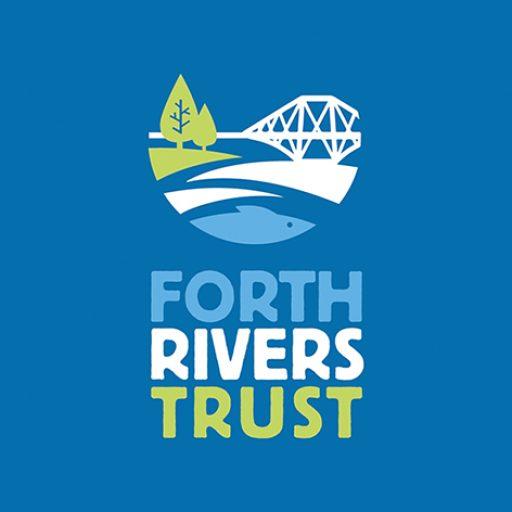Let’s address the elephant in the room: We sell Dry Bags!


Waterproof bags, by their nature are made from various forms of plastic, and as we all know plastic is not great for the environment we love. That’s why, the Dry Bags Team have made it a key objective to remove superfluous plastic from our business and make it easier for our customers to make informed, ethically sound, purchasing decisions and crucially, recycle the packaging we use for shipping.
Dry Bags in Recycled Packaging
The irony of packing dry bag rucksacks and waterproof swim bags (often themselves packaged in protective plastic bags), into plastic shipping bags is not lost on us! That’s why we made the decision to only use 100% recycled packaging for all our shipping.Why Not Biodegradable Packaging?
Biodegradable packaging is designed to break down in landfill, where it generates greenhouse gasses as they break down in landfill. Biodegradable plastic plays havoc with the recycling process if mixed in with regular plastic bags. Even a small amount can have a disastrous effect on a batch of recycled plastic, causing it to be unstable and unusable.Where can I recycle my packaging?

Why not use paper bags?
That’s a very good question. A research paper produced by the Northern Ireland Assembly said it "takes more than four times as much energy to manufacture a paper bag as it does to manufacture a plastic bag." And as the BBC reports, plastic bags are made from the waste product created by refining oil. Yes, far from ideal, but paper is generally created by cutting down trees, transporting them to sawmills, chipping then, etc, and unless this is done sustainably, there is still a huge environmental cost. Paper also weighs more than plastic, so requires more energy to transport it throughout the lifecycle. What about the recycling process I hear you ask? Surely paper is easier than plastic to recycle or compost? Yes, recycling one tonne of cardboard requires 25% less energy than to produce it from virgin wood chippings, whilst plastic recycling sees even great benefits; one tonne of plastic requires 65 -85% less energy than making it from new fossil fuels. The answer? Recycling of everything has never been more important!Our suppliers

OverBoard were one of the first to package almost all their waterproof bags in an opaque biodegradable packaging – please ensure these are disposed of in your rubbish bins as they’ll decompose in land fill and not ruin the plastic bag recycling process.
We understand Swim Secure are planning to make transition soon, too. We have, naturally, spoken about this with all our suppliers, however, due to the global production of dry bags and the lead times involved, changes won’t be seen immediately.
Buy Quality
In the case of dry bags, old adage of “by cheap, buy twice” rings true. We strongly believe it’s a false economy to buy budget waterproof bags. Cheap dry bags quickly become brittle and perish with the suns UV rays, so you really don’t want to be entrusting your valuables to flakey products for the sake of saving a few quid. We’d suggest buying premium waterproof bags that you know will stand up to the rigours of your outdoor pursuits and serve you well for many years. That way you won’t need to replace them and contribute unnecessarily to landfill.
What’s more, budget bargain bags often have a PFAS (poly- and perfluoroalkyl) coating that makes water bead up and roll off. A growing body of science has found that there are potential adverse health impacts associated with PFAS exposure, including liver damage, thyroid disease, decreased fertility, high cholesterol, obesity, hormone suppression and cancer. These chemicals can easily find their way into the ecosystem, rubbing off waterproof jackets and bags and into food, dust, soil and, perhaps most crucially, water. We’re proud to report that none of the products we stock have a PFAS coating.
The Madrid Statement
Read more about the scientific research around the harm PFASs cause to the environment.Ethical Manufacturing
The Dry Bags team take a keen interest in how and where all the products we sell are manufactured. If we felt they were produced in sweat shop conditions, we wouldn’t sell them. Period.
Watershed manufacture all their products in the USA. This ensures their quality control is second to none. Whilst you pay a premium for this brand, we feel wholeheartedly, that it’s worth it. The waterproof rucksacks and duffels will last many years of adventure in inhospitable conditions.
OverBoard work closely with their Chinese factory and kindly shared the Code of Conduct Audit, a comprehensive report compiled by a third party. It which showed the factory complied, to the letter, with their human right obligations.
Swim Secure confirm that there are no PFASs involved in the manufacturing of their products and as soon as travel restrictions ease, they’ll be visiting their manufacturing facilities in person.
Exped – We're delighted to learn that all Exped products are PFOA(C8) free and have been since 2016 and 85% of the range is entirely PFC free. 97% of the fabrics used in their range are Oeko-Tex Standard 100 certified. Oeko-Tex standards are designed to ensure chemicals harmful to human health are absent from the supply chain and ensures that manufacturers / factories cannot simply claim to be using non-harmful materials as they are subject to testing and inspection.
When it comes to packaging, all Exped products are supplied in glue-free cardboard packaging - which we very much approve of!
Exped state that "Exped products are exclusively manufactured by highly specialised companies whose factories are industry leaders with the highest levels of workforce and management expertise. To maintain high-quality manufacturing and a highly trained production team, these companies offer their employees progressive working and employment conditions. We hold longstanding and close partnerships with our suppliers and coordinate our production plan closely with them."
Conclusion
We appreciate every one of our customers will have to make their own ethical decisions when it comes to choosing to invest in waterproof bags. As the UK’s leading dry bag specialists, we hope we can help guide you through the myriad of materials, bags and features to help you buy the bags best suited to your needs and values.
We will of course continue to learn about the subject of packaging and the aim of eliminating single use plastics. If you’d like to do further reading on the subject, we highly recommend Ecobahn















